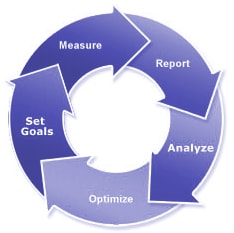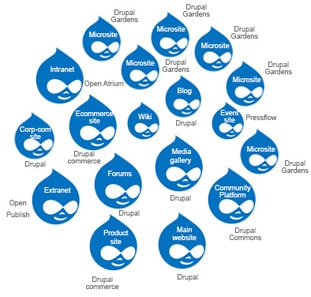July 21, 2015 By: Vikas Agarwal
I have discussed in my previous posts various factors such as usability, mobile-friendliness, and Support for Multiple Languages and Internationalization, cloud vs on-premise deployment, scalability, and so on. I’ll be focusing on some important factors in this post.
Analytics, Intelligence, and Marketing Optimization

Many CMS applications of today come shipped with built-in analytics integration while others offer integration with third-party analytics tools, such as Google Analytics. Also, few CMS applications offer integration with marketing optimization services while others have built-in integration with the marketing optimization tools from the same vendor. Depending upon your need to carry out analytics on the users’ behavior and visitor trends, you should carefully choose your CMS product. Going overboard while assessing your CMS on these aspects may sometimes cost you a fortune, while ignoring this aspect may deprive you of some potential business opportunities. Therefore, you should understand your analytics and marketing optimization requirements first, depending upon your target visitor segments and the possibility of earning direct or indirect revenue.
Multi-site Support

If your website needs to support several micro-sites or should have translated copies (or different copies) for various types of users or locations, multi-site support becomes a vital feature. Of course, implementing multiple sites may require additional development cost but your chosen CMS should certainly support it even if you don’t implement it in the first phase. After all, you never know if you’ll run into a multi-site need in future.
Installation / Migration / Upgrades
There are several technical challenges (other than development and customization) associated with a CMS implementation, classified broadly into categories, including environment setup, installation, migration from other systems, and upgrades to newer versions. Surprisingly, many CMS applications don’t have straightway methods to simplify these vital aspects. Ideally, these ceremonial activities shouldn’t take long so as to allow developers and designers to focus on the real stuff, i.e. developing an awesome portal.
Documentation/User Support
Ideally, from a User Experience doctrine perspective, an application having a great user experience design should not require help manuals. Similarly, from a software design perspective, great quality code shouldn’t require much documentation either!
Unfortunately, we don’t live in an ideal world and in many scenarios, your users as well as the developers, both would require some assistance while using the portal or while developing it. Therefore, it’s pragmatic to expect a good CMS to have a reasonable level of documentation shipped with it.
In addition, if it’s your own technical team that’s implementing, you should also consider buying a support subscription. Therefore, it’s imperative that your chosen CMS comes with a support option, either from the CMS vendor itself or from a third party, possibly like JK Tech.
So I talked about a lot of factors in my post till now. Do you agree with me about the factors that I talked about are imperative. I’m keen to know your views.



